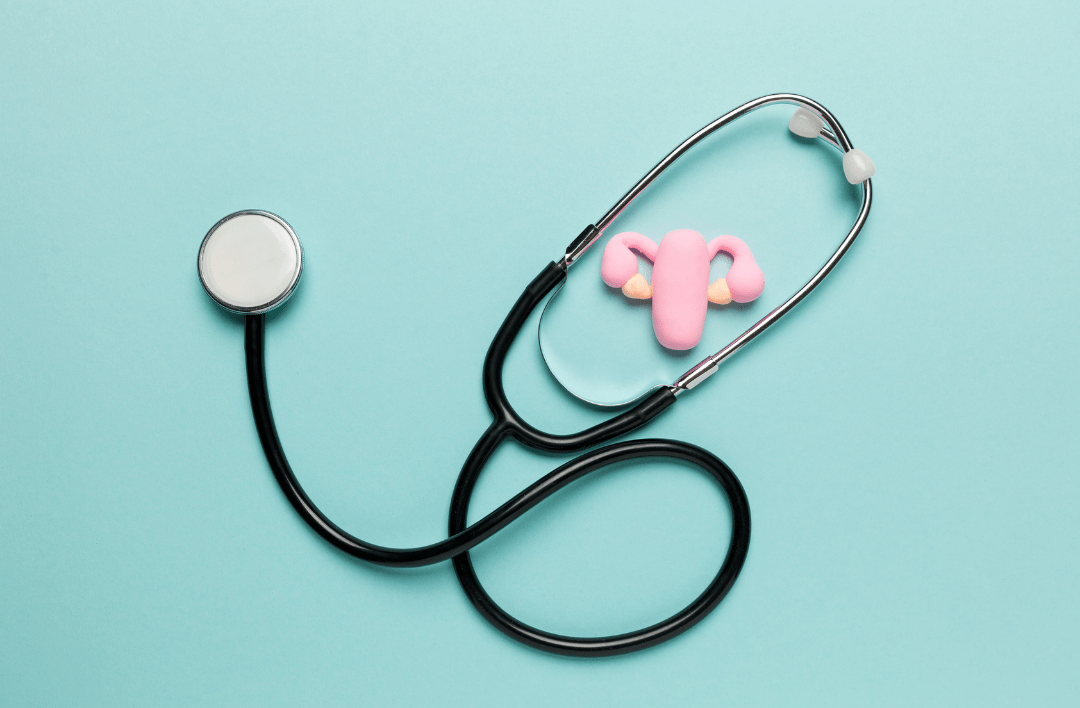Can PCOS be cured? While there is no single medicine that can cure PCOS permanently and help in the polycystic ovaries treatment, there are many ways to manage the symptoms and keep PCOS in check. Neglecting to manage or take conscious care of PCOS can affect your health in many ways in the long run and cause many health problems. If left untreated, PCOS can increase the risk of triggering long term health conditions such as type 2 diabetes, infertility, cardiovascular diseases, etc.
Your doctor will prescribe you a treatment for PCOS based on the symptoms you are experiencing.1 Following are some options that can help you manage PCOS and its symptoms:
1. Weight management
It is observed that 60% of women with PCOS are either obese or overweight.2 Reducing some amount of body weight if you are overweight can help improve PCOS and reduce its effects. Therefore, losing approx 5% of body weight can significantly help avoid the risk of diabetes, high cholesterol, blood pressure, and chances of infertility. Losing weight can also help to reduce the production of androgen and insulin. This in turn would improve the regulation of ovulation.
2. Lifestyle changes
If you have insulin resistance or a high BMI along with PCOS, chances are that your doctor has suggested diet changes. There are certain foods that are low in glycemic index which are recommended for PCOS. Eating healthy meals will also help to avoid any risk of developing diabetes due to insulin resistance. Consider including fruits like various berries. Vegetables like tomatoes, kale, spinach, pumpkin sweet potatoes, broccoli, cauliflower, brussels sprouts, red and green bell peppers, and arugula. Lean protein sources like chicken, fatty fish that are rich in omega-3 fatty acids (salmon and sardine), and tofu. Add more foods that are high in fibre. Furthermore, avoiding refined/high carbohydrates and low-fat food items can help to keep insulin resistance in check. Red meats and processed foods like white bread, sugar dishes, desserts, etc are among the list of highly processed foods that can cause inflammation.3
3. Maintain hormonal balance
If you are not wishing to get pregnant any time sooner, then your doctor may prescribe you birth control pills. The hormones in birth control pills help to reduce the production of androgen. Androgen is a male hormone that is released in excess in women with PCOS. Reduction in androgen production can help reduce symptoms of PCOS like hirsutism which causes excess hair growth on the face, chin, and male pattern baldness.4 Abnormal/heavy bleeding, acne, and excess hair growth can all be taken care of by combined oral birth control pills. The combined oral contraceptive pills can also benefit to reduce the risk of endometrial cancer.5
4. Exercises
Exercising for a reason or without a reason will always reward you with lots of health benefits. Hence, working out to manage PCOS can be very beneficial for both- overweight women as well as the ones who ain’t overweight. Having only a diet routine won’t give you as many desired results as you think if you don’t complement it with your workout routine. Stress is another reason that affects the period cycle. Exercising will not only help you to reduce excess weight gain but can also significantly uplift your mood and reduce stress. Some exercises are yoga, pilates, brisk walking, jogging, swimming, gyming, etc are some workout options that may help to manage PCOS.6
What is the main cause of PCOS?
The exact cause of PCOS is unknown. Although, there is evidence that genetics are involved. There are other factors which may also contribute to PCOS, which are:
- Increased amounts of androgens or male hormones – Higher androgen levels in the body prevent ovulation, which can result in irregular periods. This may cause smaller, fluid-filled sacs in the ovaries due to irregular ovulation. High androgen levels in the body also lead to acne and excessive hair growth in women.
- Insulin resistance in the body – Increased insulin levels in the body can cause the ovaries to release more androgen (male hormones). These increased androgen levels subsequently prevent ovulation and worsen other PCOS symptoms. Insulin helps your body process glucose (sugar) for energy. Insulin resistance occurs when your body does not properly process glucose, causing excess glucose levels in your blood. Insulin resistance can also be influenced by being obese or overweight and sometimes cause diabetes.
- Low-grade inflammation – Chronic low-grade inflammation is a condition that is observed mainly in people with PCOS. It is a response where the white blood cells in our body produce chemicals in response to infection or injury. According to research, women with PCOS have a type of long-term, low-grade inflammation that causes their polycystic ovaries to produce androgens. It may lead to problems with the heart and blood vessels.
- If you have a family history of PCOS – According to research, some genes may be linked to PCOS. So, having a family history of PCOS may have a role in developing the condition.7
Can you get pregnant with PCOS?
PCOS and pregnancy:
Getting pregnant with PCOS can be challenging due to hormonal imbalances. Women with PCOS are also likely to experience several health issues throughout their lifetime, including:
- Insulin resistance
- Type 2 diabetes
- High blood pressure and cholesterol
- Heart problems
- Stroke
- Sleep apnea
- Increased risk of endometrial cancer
It is possible for you to get pregnant while having PCOS. But you will most likely need to maintain a healthy weight, control your blood sugar levels, and treat other PCOS symptoms with healthy lifestyle changes and medications.
In some circumstances, fertility medications can help you get pregnant. If that doesn’t work, you might require IVF treatments.
But, no matter what treatment you choose, do not give up hope because the success rate is high and you can definitely treat PCOS to get pregnant. You may be delighted with a positive pregnancy test in hand in no time.8
How can I solve PCOS naturally?
How can PCOS go away? There are many alternatives for managing PCOS naturally and also for the PCOS symptoms treatment. But before choosing a treatment option, you should always consult your doctor. Here is a list of polycystic ovary syndrome natural treatment options:
- Make some dietary changes – By consuming a balanced diet and avoiding some items in your diet, you might be able to manage your PCOS symptoms. A nutritious diet may help you regulate your hormones and menstrual cycle, and treat PCOS naturally to get periods. Avoid consuming processed and highly preserved foods, as they can make you more prone to inflammation and insulin resistance.
- Consume more probiotics – Probiotics might significantly impact the management of PCOS. They can also reduce inflammation and regulate hormones like androgen and estrogen. Consider drinking kombucha and eating kimchi (two foods and beverages high in probiotics).
- Manage your weight – In addition to reducing insulin resistance and lowering your risk of PCOS-related problems, maintaining a healthy weight can also help you control your menstrual cycle. According to some studies, a low-calorie diet that promotes gradual weight loss may be an effective first-line PCOS treatment if you are overweight.
- Exercises – Exercise is necessary to maintain a healthy weight. However, excessive physical activity may interfere with your hormones, so consult your doctor to learn more about the exercise that can be most beneficial for you.
- Reduce stress – Reducing your stress levels can help control the cortisol levels in the body. Stress reduction methods like yoga, good sleep, and consuming less caffeine. You might feel less stressed if you can walk outside and schedule some time for some rest and self-care.9
What food is good for PCOS?
High-fibre foods can help fight insulin resistance by slowing digestion and decreasing blood sugar levels. It could be beneficial for people who have PCOS and help in the PCOS treatment.
Some examples of high-fibre foods are:
- Vegetables like broccoli, cauliflower, and Brussels sprouts
- Greens, including red leaf lettuce and arugula
- Green and red pepper
- Lentils and beans
- Almonds
- Berries
- Sweet potatoes
- Pumpkin
Although lean protein sources such as tofu, chicken, and fish do not include fibre, they are a filling and nutritious dietary option for those with PCOS.
Foods that reduce inflammation may also be helpful for the polycystic ovary syndrome treatment. These foods include:
- Tomatoes
- Spinach
- Almonds and Walnuts
- Olive oil
- Fatty fish like salmon and sardines
You must avoid refined carbohydrates and sugars as they cause inflammation and increase insulin resistance. However, before changing your diet plan, it is best to speak with a doctor. They can recommend a diet that is right for you.10
How do gynaecologists check for PCOS?
There is no one particular test that can diagnose PCOS. Your doctor will most likely start by talking about your symptoms, medications, and other medical conditions. They might also ask about your menstrual cycle and weight fluctuations. A physical examination might be needed to look for signs of acne, insulin resistance, and excessive hair growth.
Your doctor may also recommend:
- Pelvic exam: During a pelvic exam, your doctor might look for masses, growths, or other changes in your reproductive organs.
- Blood tests: Blood tests can help to measure your hormone levels to rule out possible causes of irregular periods or androgen excess that mimic PCOS. You might also need other blood tests, such as fasting cholesterol and triglyceride levels. A glucose tolerance test can determine your body’s response to sugar (glucose).
- Ultrasounds: An ultrasound can evaluate the appearance of your ovaries and the thickness of your uterine lining. A wand-like device (transducer) is placed into your vagina. The transducer generates sound waves which translate into images on a computer screen.
If you have been diagnosed with PCOS, your doctor may recommend additional tests to rule out complications. These tests include:
- Regular checking of blood pressure, glucose tolerance, and cholesterol and triglyceride levels
- Screening for depression and anxiety
- Screening for obstructive sleep apnea 11
Is egg good for PCOS?
Women with PCOS who want to lose weight should eat eggs. They are high in protein, which helps to reduce unhealthy cravings, and they include nutrients that help in PCOS symptoms treatment. It has the amino acids our bodies require to keep our muscles, eyes, nerves, and tissues healthy. The egg white contains most of the necessary protein. Egg yolk is high in omega-3 fats, iron, folate, vitamins A, D, and E, thiamin, and choline.12 13
Which multivitamin is best for PCOS?
Managing weight and eating a balanced diet are essential for managing PCOS (metabolic syndrome). Many studies have found correlations between hormonal imbalances, insulin resistance, obesity, and PCOS. Vitamins and minerals are essential for any healthy eating regimen, but they are overlooked sometimes and you should include them in your PCOS treatment diet.
Vitamins play vital roles in the body. For example, vitamin D deficiency is linked to insulin resistance, PCOS, and depression. It is also required for calcium absorption, which means that proper vitamin and mineral intake is vital for women with PCOS.
High insulin levels in PCOS women can induce the ovaries to produce more androgens which might lead to excessive body hair, acne, and irregular or irregular periods. However, insulin resistance increases the risk of diabetes and PCOS.
Folate and vitamin B (12) treatments can improve insulin resistance in patients with metabolic syndrome.
Vitamins B2, B3, B5, and B6 are also beneficial for weight control in the following ways.
- Vitamin B2, also known as riboflavin, processes fats, sugars and proteins into energy.
- Vitamin B3, also known as niacin, is a component of the glucose tolerance factor, which is released as blood sugar levels rise to help maintain balance.
- Vitamin B5, also known as pantothenic acid, is required for fat metabolism.
- Vitamin B6 helps to maintain the hormonal balance of the body.
Hence, you should take the necessary vitamins and minerals to regulate and cure PCOS.14
Can PCOS cause weight gain?
PCOS makes it more difficult for the body to use the hormone insulin, which normally helps to convert sugars and starches from food into energy. This condition, known as insulin resistance, can cause a buildup of insulin and sugar (glucose) in the bloodstream.
These high insulin levels increase the production of androgens. These hormones can cause weight gain, which usually occurs in the abdomen. That is where men tend to carry the most weight. As a result, women with PCOS have an apple shape instead of a pear-shaped body.15
You are not alone in this journey, there are a lot of women going through the same condition. You can connect with thousands of women from all over the world through anonymous community support chatrooms for FREE! And also consult with a qualified and friendly gynaecologist @ ₹177/- only! So what are you waiting for? Download the Pinky Promise App now!






